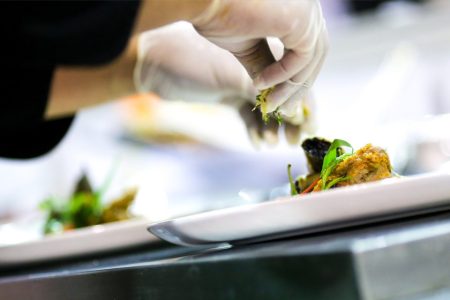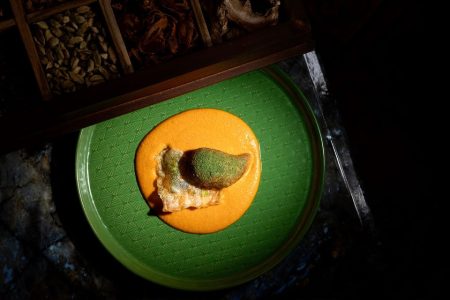Organised by the marketing body Wines of Portugal, a wine tasting in Macao yesterday showcased the increasing diversity of Portuguese wine styles, and the tremendous value for money they offer. Premium Portuguese wines can be readily found in Macao for under 500 patacas, a price which would be at least twice that if they were French labels.
A fascinating masterclass was delivered by Wines of Portugal educator Sofia Salvador, and two winemakers from Portugal were in attendance: Jorge Serôdio Borges from the premium boutique Douro estate, Wine and Soul; and Simão Baptista Cardoso from Quinta de Valbom in the Douro and, in Alentejo, Herdade dos Grous, one of the best-known estates in Portugal.
Much emphasis has previously been placed on the wines of the Douro and Alentejo, as well as the ever-popular Vinho Verde. Now, with high levels of quality evident across regions, the variety is much greater.
[See more: Portuguese wine tastings and more at IPIM products fair]
Wines from the cool-climate Dao region are now more and more available, with particular enthusiasm shown for the indigenous white grape Encruzado. The often easy-going, approachable styles of the Lisboa region are also coming to the fore, exemplified in the award-winning Quinta das Setencostas 2021 which achieved a slew of gold medals in wine shows, and also the trophy for Best Value Red.
Portuguese producers are meanwhile increasingly embracing sustainable practices, with Alentejo a world leader in this regard, and there is considerable experimentation within the industry. Top Vinho Verde producer Soalheiro has even added a natural wine to the range, called Terramatter.
Also marked is the significant rise in interest in old vineyards, and the number of field blends on the market. Field blend refers to the tradition of planting a range of varietals, often with red and white grapes sharing the same plot, to ensure that if environmental conditions should affect one or more of the grape varieties, the entire harvest would not be lost. The grapes would then fermented together – even as many as 40 different varietals.
[See more: The French are drinking less wine, a new study shows]
Winemaker Simão Baptista Cardoso singles out Quinta de Valbom Vinhas Velhas 2016. It is a field blend of many traditional Douro varietals, from a vineyard which is more than 100 years old and, given the wine’s freshness alongside fabulously dusty tannins, still has plenty of ageing potential. The Marias da Malhadinha 2021 from the prestigious Herdade da Malhadinha Nova estate in Alentejo, is a field blend from a vineyard dating to 1949 where bush vines sit alongside fig trees.
Where once port dominated production in the Douro, followed by the emergence of high-end red wine in the last three decades or so, the white wines now being crafted are exceptional. Winemaker Jorge Serôdio Borges is exploring the potential of old vineyards at high elevations. The yields from old vines are low, thus vineyard owners tend to pull them up and plant new vines.
Borges has managed to acquire one such vineyard for the creation of Guru Vinha da Calçada 2021, a field blend from this 100-year-old, single vineyard with schist-granite soils at an elevation of 500 metres. A blend of traditional Douro white varietals including Gouveio and Rabigato, it is a remarkably concentrated wine with shimmering mineral freshness.
The tasting also showed the importance of the Greater Bay Area for the Portuguese wine industry. Many top Portuguese producers are present in Macao, including cult labels, and the wines of innovative young winemakers. Portuguese wine comes in third in both value and volume (after Australia and France), and indeed there was a sales growth of 5.8 percent in 2024, in spite of economic slowdown.
[See more: ‘China has quite a lot of potential.’ Meet master of wine and Youtuber Konstantin Baum]
“We have been present in Macao for many years,” said Sofia Salvador, “and now also see Macao as a great showcase for Portuguese wine, especially for mainland Chinese tourists”.
Several of the exhibitors were seeking distribution in the market, including Porto-based Carlos Mendes Moreira, founder of Enopartner, which represents a diverse range of wine estates. Moreira is keen to strengthen his presence in Macao, even if market conditions are not perhaps in their best moment.
“We are culturally close and there is a tradition of Portuguese wine consumption in Macao” he said. Indeed Andrea Chang, Brand Manager for local wine importer HN Speed, which was representing the wines of Quinta da Devesa from the Douro at the tasting, says her first experience of wine was Portuguese. “Portuguese wine is a part of our life. We keep a certain passion for it. It is a match with local food. It is our house style.”






